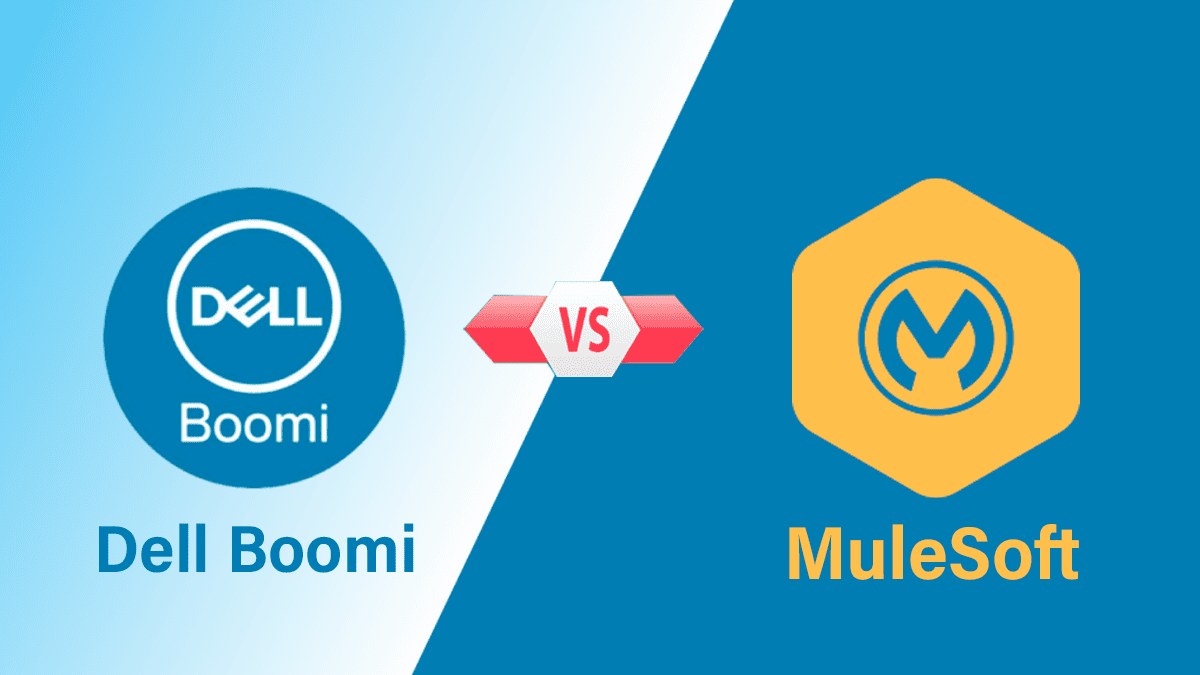The use of integration platforms continues to grow as companies strive to create innovative solutions for their digital transformation. Dell Boomi and MuleSoft are two leading integration platforms that enable organizations to quickly, securely, and easily connect applications, data, and devices. In this article, we will take a close look at the features, advantages, and differences between Dell Boomi and MuleSoft. We will examine how each platform can help organizations build integrated applications and unlock the power of their data.
What is Dell Boomi?
Dell Boomi is a cloud-based integration platform. It allows organizations to easily and efficiently connect their applications, data, and systems in real-time. The platform provides pre-built connectors, workflows, and drag-and-drop tools for building integrations without coding.
Using Dell Boomi, businesses can streamline their operations by automating processes such as data synchronization, migration, and application integration. The platform also offers features for managing business-to-business (B2B) communication and electronic data interchange (EDI).
One of the key advantages of Dell Boomi is its scalability. Whether an organization needs to connect just a few applications or hundreds of them across multiple locations, the platform can handle it seamlessly. Additionally, with its low-code approach to integration development, Dell Boomi empowers non-technical users to build integrations quickly and easily while reducing dependency on IT resources.
If your Individually Interested To Learn Dell boomi, Our Dell boomi Training Will Upgrade Your Sklls
What is Mulesoft
Mulesoft is a platform that allows businesses to connect different applications, data sources and APIs with ease. It uses application programming interfaces (APIs) to enable businesses to integrate their systems, making it easier for them to share information and access data in real-time. With Mulesoft, companies can seamlessly connect all their systems regardless of the technology used.
Mulesoft’s Anypoint Platform is designed to help organizations create an integrated ecosystem by connecting disparate systems such as databases, legacy applications and cloud-based services. The platform provides a central hub where all these different systems can be connected together in a cohesive manner. With its drag-and-drop interface, Mulesoft makes it easy for developers to build integrations without having to write complex code.
Architecture: Comparing Architectures
Dell Boomi and MuleSoft are two of the most popular integration platform solutions across different industries. Dell Boomi offers a cloud-based solution that integrates data, applications, and processes while MuleSoft is an open-source integration platform for connecting enterprise systems. Both platforms offer a wide range of features that make them suitable for different use cases.
One notable difference between Dell Boomi and MuleSoft is their approach to integrations. Dell Boomi uses a visual interface that makes it easy to create integrations using drag-and-drop components. On the other hand, MuleSoft relies on coding and configuration which requires developers with more technical expertise to set up integrations. This means that while Dell Boomi is easier to use, it might not be as flexible as MuleSoft when dealing with complex integrations.
Another significant difference between the two platforms is pricing. Dell Boomi has a lower entry point in terms of cost compared to MuleSoft which can be more expensive depending on the size of your organization and the complexity of your integration needs. However, both platforms offer scalable pricing options based on usage which makes it possible for businesses to start small and scale up as their needs grow.
Connectors & Integration Patterns:
When it comes to connectors and integration patterns, Dell Boomi and MuleSoft are two names that come up frequently in discussions. Both companies offer a wide range of pre-built connectors that allow for easy integration with various applications, systems, and platforms. However, the approach taken by each company is different.
Dell Boomi focuses on providing a unified platform for all types of integrations – application-to-application (A2A), business-to-business (B2B), cloud-to-cloud (C2C), and data integrations. It offers over 200 out-of-the-box connectors that can be used to connect to popular SaaS applications like Salesforce, Workday, NetSuite, etc., as well as traditional on-premise systems like SAP and Oracle.
On the other hand, MuleSoft takes an API-led approach to integration. It offers a powerful API management platform along with its Anypoint Connector DevKit that allows developers to create custom connectors quickly. MuleSoft’s platform also includes a large library of pre-built connectors for common systems like Salesforce, SAP, AWS, etc.
In conclusion, both Dell Boomi and MuleSoft have their strengths when it comes to connectors and integration patterns. Choosing between them will depend on factors such as the specific requirements of your organization’s integration needs and the level of customization required in building those integrations.
Performance & Scalability: Testing Results
The performance and scalability of an integration platform are critical factors to consider when comparing Dell Boomi and MuleSoft. In a recent testing scenario, Dell Boomi outperformed MuleSoft in terms of response time and throughput for several use cases. For example, when running a complex data transformation process, Dell Boomi exhibited 50% faster response times than MuleSoft.
In addition to superior response times, Dell Boomi also showed better scalability capabilities compared to MuleSoft Training. When tested with increasing message sizes and concurrent users, the Dell Boomi platform was able to handle a higher volume of traffic without any degradation in performance or stability. This capability is particularly important for organizations that require their integration platforms to handle large volumes of transactions in real-time.
Overall, these testing results demonstrate that Dell Boomi offers superior performance and scalability compared to MuleSoft. Organizations seeking an integration platform that can efficiently handle large volumes of data should consider the benefits of using Dell Boomi as their preferred solution provider.

As the editor of the blog, She curate insightful content that sparks curiosity and fosters learning. With a passion for storytelling and a keen eye for detail, she strive to bring diverse perspectives and engaging narratives to readers, ensuring every piece informs, inspires, and enriches.










